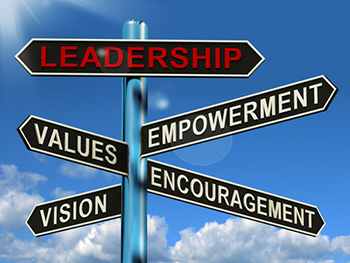“Leaders become great, not because of their power, but because of their ability to empower others.” (John Maxwell)
Who do you know that is a good leader? What attributes set them apart? When I see a good leader, I am as equally impressed with the people that work for him/her as I am with the leader themself. Good leaders have a tendency to have great employees. That’s because good leaders know how to empower others. When a person feels empowered, they will work harder and take more ownership in their work.
Empowerment doesn’t just mean making people feel good about themselves. The actual definition requires more action: “empowerment: giving someone the power or authority to do something.” Leaders are in a unique position to empower others because they can equip their team with skills AND provide a platform to exercise them.
So, how can you empower others as a leader? In this blog post, we’ll cover 3 main ways:
- Foster Communication
- Model Respect
- Delegate Tasks
1. Foster Communication
Many businesses (both big and small) have an environment of top-down communication. A leader makes a decision and the employees follow through. There typically is not a direct line of communication between the executive leadership of a company and the employees. We need to change that. Give employees a structured way to provide input. Utilize a survey, host an informal meeting, or use the old “comment box” idea. Whatever structure you choose, make sure they know their opinion matters and that you value them (even if you do not use their opinion in making decisions.) When a person feels heard and understood, they will take more ownership in their work.
[Related: The 3 Most Important Lessons I’ve Learned as a CEO]
2. Model Respect
Many leaders do not model respect to their employees. They issue commands and expect employees to just make it happen. Employees might fear getting fired and follow the commands, but fear is not respect. Model respect to your employees and they will show you respect back. One easy way to show respect to your employees is with your body language. Be sure you make eye contact with them and smile. Avoid looking at your phone or computer when they are talking. Give them your complete attention. With respect you can get others to follow you, and getting people to follow you (and your vision) the key to good business! When a person feels respected at work, they will happily do more than is expected.
3. Delegate Tasks
If you want to empower others, you need to provide them with something to achieve. In business, delegation is a great way to do this. Some leaders won’t delegate tasks because they are afraid that they will lose control. Others delegate but worry that mistakes may be made. However, it is possible to delegate tasks without losing control or allowing mistakes to be made. [Related: 3 Steps to Developing Business Systems]
The easiest way to delegate is to find an employee who has the skill set needed for the task. Then, give them room to do the task and report back to you. Having a schedule of regular updates helps you keep control and conduct damage control on potential mistakes.
Delegation brings freedom and empowerment to both the leader and the employees. Proficient employees will grow weary if they have to run to the boss for every decision. So, delegate some tasks to your employees. Delegation engages employees, helps them grow, and provides them with new challenges. Employees will get a sense that their manager trusts them, and that trust often results in high-producing team members!
How do you empower others in the workplace? We’d love to hear in the comments!




helping some one is like leding to God proverbs 19-17